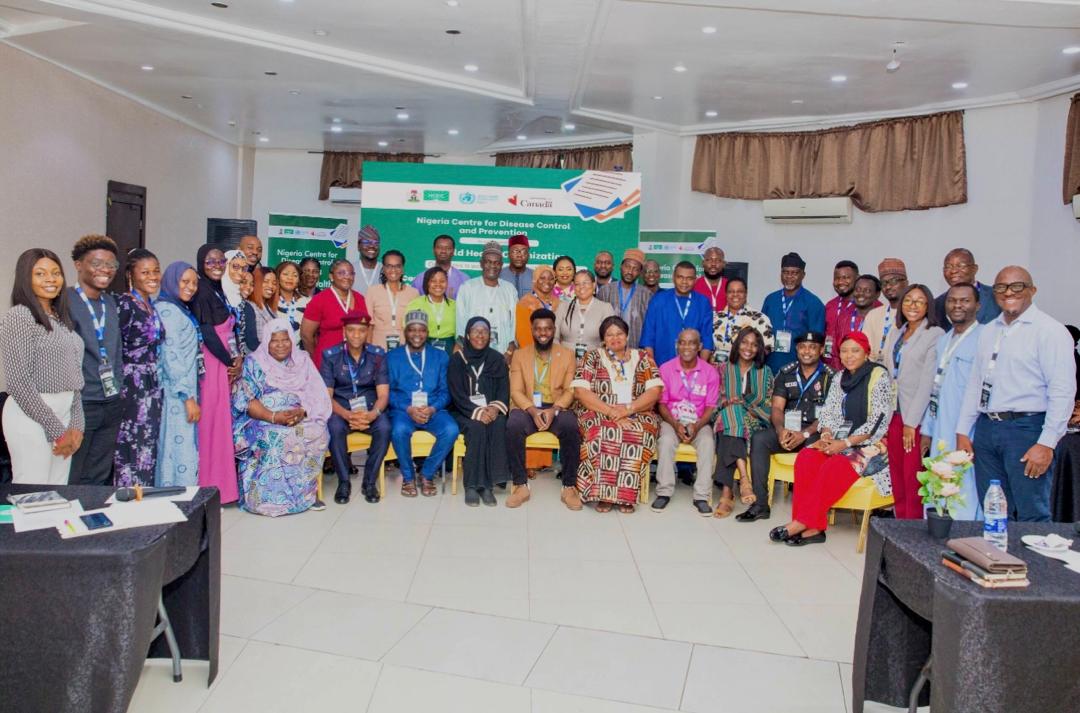The Nigeria Centre for Disease Control and Prevention (NCDC), in partnership with the World Health Organization (WHO), has launched a six-day workshop aimed at strengthening risk communication strategies for public health emergencies.
Taking place from November 25 to 30 in Lagos, the workshop brings together key stakeholders, including officials from federal and state ministries of health, journalists, communication specialists, and security personnel, all of whom play critical roles in responding to public health crises.
The workshop is funded by the Canadian government through the CanGiVE project. It is designed to enhance the capacity of participants to effectively communicate health risks, engage communities, and manage information during emergencies.
This initiative is part of the Strengthening and Utilising Response Groups for Emergencies Initiative (SURGE), a WHO project aimed at improving preparedness, detection, and response capabilities to health emergencies in Africa.
During the opening ceremony, WHO’s Nigeria Country Representative, Walter Mulombo, highlighted the importance of risk communication and community engagement in disease prevention. Representing the Acting State Coordinator for WHO in Lagos, Memuna Esan, Mulombo stressed that the training program is crucial for equipping Nigeria to respond effectively to health crises and emphasized WHO’s commitment to supporting the Nigerian government in achieving its health objectives.
“I am particularly excited because the outcomes of this meeting will be vital in improving awareness, delivering key messages, engaging communities effectively, and managing infodemics, especially in this age of overwhelming information targeting vulnerable populations,” Esan stated.
She added that the program would extend to Nigeria’s six geopolitical zones, including Edo, Kano, Yobe, Lagos, Abia, and the Federal Capital Territory (FCT), which are part of the SURGE-selected states.
“The World Health Organization in Nigeria is committed to working with the Federal Government, NCDC, relevant ministries, and other key stakeholders to prevent diseases and promote the health of Nigerians,” she affirmed, noting that disease outbreaks often begin and end at the community level.
Tochi Okwor, National Infection Prevention and Control Programme Coordinator at NCDC, who represented the Director-General of NCDC, Jide Idris, emphasized the need for a proactive approach to disease prevention. Okwor underscored the importance of capacity-building workshops like this one, which aim to develop adaptable and effective risk communication strategies for social and behavioral change.
“We need to ensure that we focus on disease prevention by addressing the root causes and creating generic messages and materials that can be easily adapted to encourage action in the community,” Okwor stated.
Ezioma Madu, Deputy Director of the Health Promotion Division at the Ministry of Health and Social Welfare, also spoke on the significance of the workshop as part of Nigeria’s emergency preparedness efforts. She emphasized the need for proactive action to ensure that the public is informed and prepared before emergencies arise.
“At this workshop, we will develop generic content to prepare for emergencies before they happen. These messages will be shared with the public to ensure they are prepared and ready to take preventive measures,” Madu said.
This collaboration between the NCDC and WHO represents a vital step in enhancing Nigeria’s ability to respond to public health threats by fostering better communication and preparedness at all levels of government and society.




